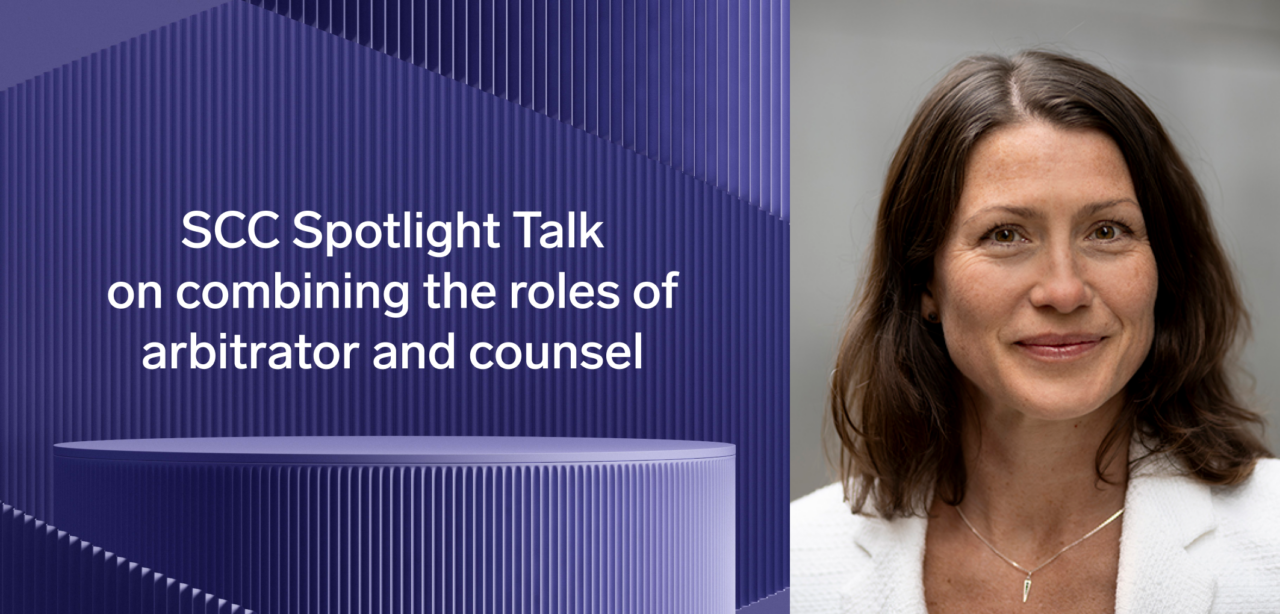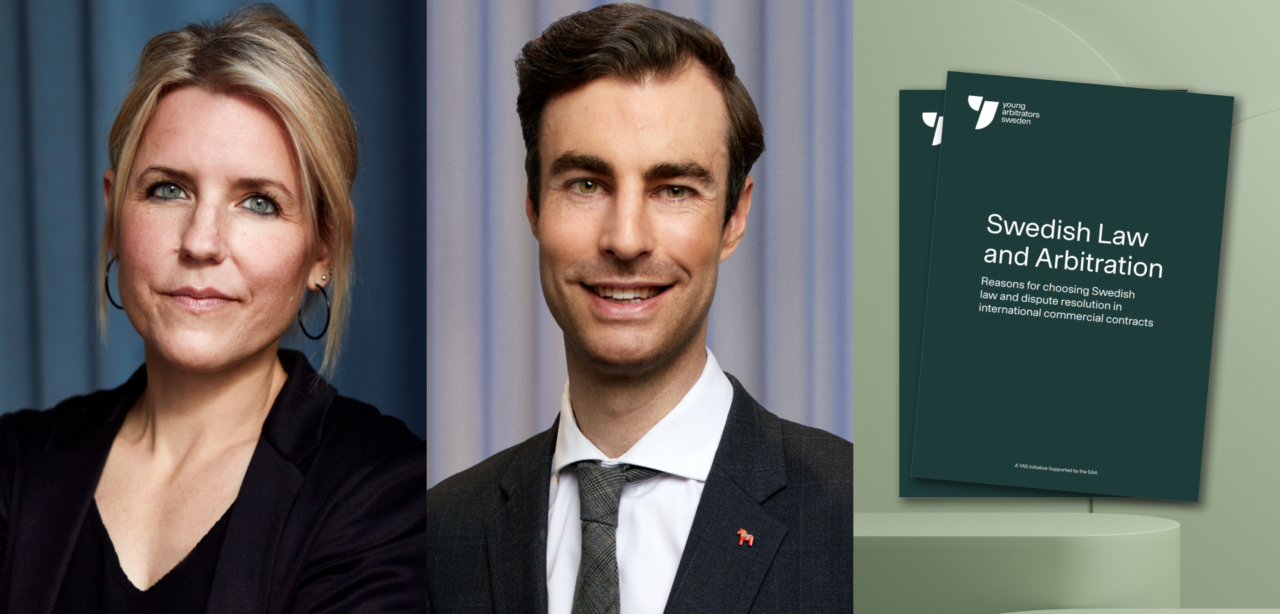Facilitating trade and business the Swedish way since 1917.
Since 1917, SCC Arbitration Institute provides a neutral, independent, and impartial venue for dispute resolution in commercial business around the world. We keep at the forefront of change to meet the developing needs of the business community. Learn more about our services.
Latest news

SCC Spotlight Talk: Katarina Mild
Combining the roles of arbitrator and counsel, sometimes known as “double hatting”, offers unique insights but also raises important questions about perspective, advocacy, and arbitrator selection.

SCC counsel contribute to YAS Publication on Swedish Arbitration
SCC’s Head of Quality Evelina T. Wahlström and Specialist Counsel Jake Lowther have contributed to Young Arbitrators Sweden’s (YAS) latest publication “Swedish Law and Arbitration: Reasons for choosing Swedish law and dispute resolution in international commercial contracts”.
Upcoming events

Tax, Legal & M&A – the devil is in the detail
16 March 2026
Stockholm, Sweden

Save the Date: SCC Annual Dinner
31 March 2026
Stockholm, Sweden
What does it cost?
The costs consist of the fee to the arbitrators/mediator, the administrative fee of the SCC and any expenses incurred.
The SCC determines the costs based on the amount in dispute, which is the total value of all claims, counterclaims and set-offs. This means that the parties often can anticipate the arbitration costs. Use the calculator to estimate such costs.
When the amount in dispute exceeds EUR 100 000 000 the SCC Board determines the Advance on Costs based on a case by case analysis.
| Conditions | |
|---|---|
| Amount in dispute | |
| Number of arbitrators | |
| Chairperson’s Fee | |
| Minimum | |
| Median | |
| Maximum | |
| The fee to the arbitral tribunal (median) | |
| Arbitrator | |
| Co-arbitrator | |
| Co-arbitrator | |
| Advance on Costs (excl. VAT) | |
| The fee to the arbitral tribunal (median) | asdf |
| Administrative Fee of the SCC | |
| Estimated Expenses | |
| Total | |
| Conditions | |
|---|---|
| Amount in dispute | |
| Chairperson’s Fee | |
| Minimum | |
| Median | |
| Maximum | |
| Advance on Costs (excl. VAT) | |
| The fee to the arbitral tribunal (median) | |
| Administrative Fee of the SCC | |
| Estimated Expenses | |
| Total | |
| Conditions | |
|---|---|
| The amount in dispute | |
| Fee of the Mediator | |
| Fee | |
| Advance on Costs (excl. VAT) | |
| Administrative Fee of the SCC | |
| Estimated Expenses | |
| Total | |
Contact us
The fee of the arbitrator and other costs are determined by the Board when the amount in dispute exceeds this amount. Contact us for cost estimates.
Contact us
The fee of the arbitrator and other costs are determined by the Board when the amount in dispute exceeds this amount. Contact us for cost estimates.

Settling disputes – step by step
An arbitration can only take place if there is an arbitration agreement between the parties. We recommend that a dispute resolution clause is included in any business agreement.

Commence arbitration
Arbitration is commenced by the claimant sending a request for arbitration to the SCC. At the same time, the claimant must also pay a registration fee. The request for arbitration must include…